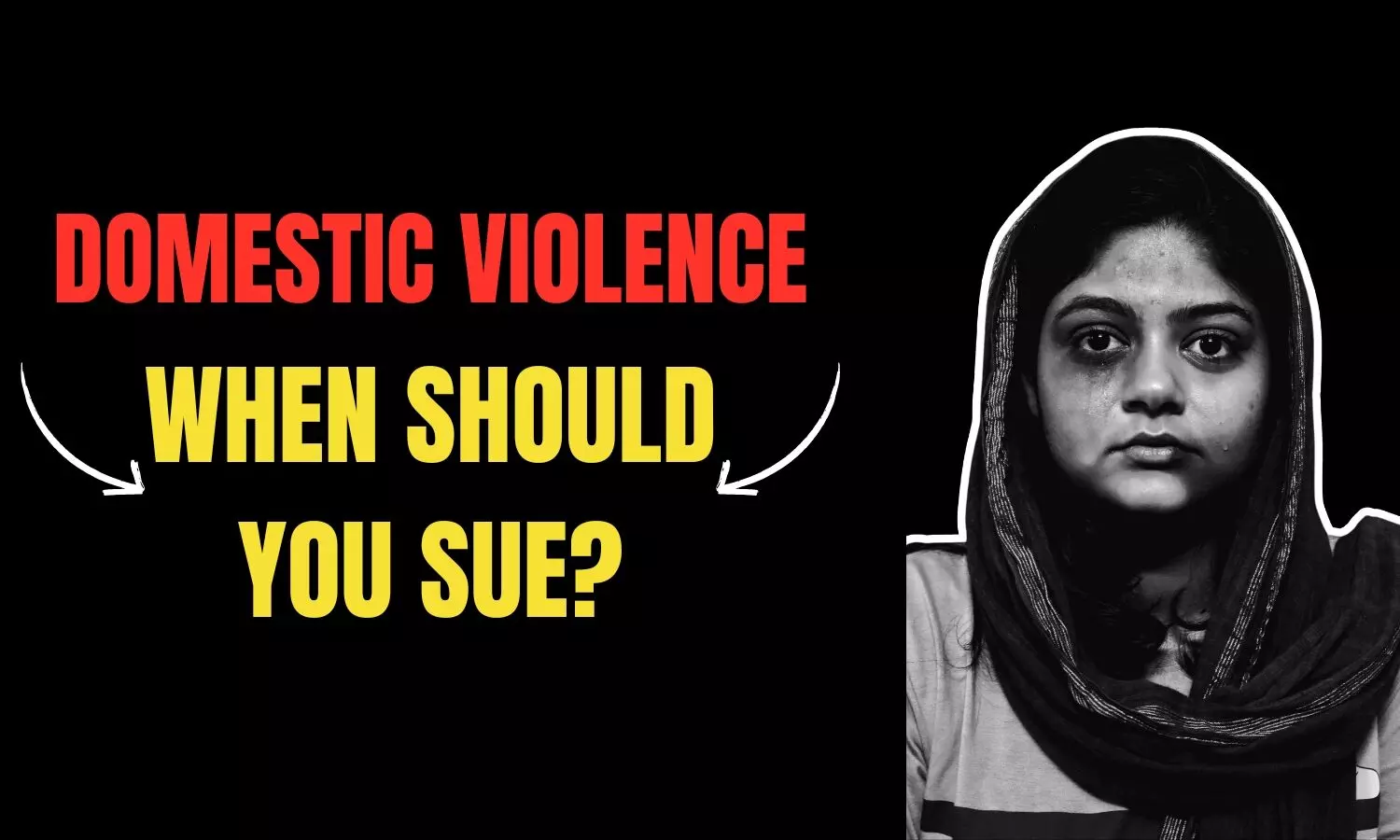Domestic Violence: When Should You Sue?
The article discusses when victims of domestic violence should consider taking legal action, highlighting scenarios like escalating abuse, threats to safety, etc. Scroll down to read more!

Domestic violence is very common. Statistics show that one in three women and one in four men have experienced violence and/or stalking at the hands of an intimate partner, with 24 people raped or attacked every minute in the US. This kind of violence affects more than 10 million people every year.
While each situation is unique, there are some common times when a victim of domestic violence may want to consider taking legal action.
I. If the Abuse Is Escalating
Many abusive relationships start with emotional or verbal abuse and then escalate to physical violence over time. If the frequency or severity of abuse is increasing despite efforts to get the abuser to stop, legal action may become necessary to protect your safety.
II. If You Are Afraid for Your Physical Safety
Threats of violence or acts of physical violence, like hitting, kicking or strangling, indicate you may be in danger. Taking legal action, such as a restraining order, can help protect you, but call 911 if the threat is immediate.
III. If Children Are Being Abused
Experts believe between 3 and 10 million kids are exposed to domestic violence each year. Witnessing domestic violence harms children. If the abuser is also physically, emotionally, or sexually abusive towards children, you should take legal action immediately.
IV. To Gain Financial Independence
Abusers often try to control victims through financial abuse. Taking legal action can help you gain child support, alimony, or access to joint bank accounts or assets which can improve your options for becoming financially independent.
V. If Violence Occurs Even After Separating
Leaving an abusive relationship does not always stop the violence. If the abuser stalks, harasses or threatens you after separating, a restraining order or harassment charges may be warranted.
VI. To Improve Custody Options
Abusers who seek custody or unsupervised visitation put children at risk for further abuse. Consulting a lawyer can help protect children from an abusive parent during divorce and custody proceedings.
VII. If You Need Documentation
Legal proceedings create records of the abuse through police reports, court transcripts, and more. Having documentation can help if you need to prove the abuse occurred to get insurance coverage, disability benefits, or workplace protections.
VIII. To Stop Repeated Abuse Cycles
Without meaningful consequences, abusers are likely to continue abusive patterns in future relationships. Legal action with help from domestic violence lawyers can be one way to help break the cycle and show the abuser their actions have real impacts.
IX. For Justice and Closure
Taking legal action can empower victims and provide a sense of closure after abuse. It sends the message that domestic violence is unacceptable and the abuser will be held legally accountable for their actions.
X. To Access Legal Protections
There are legal protections, like the Violence Against Women Act, designed to help domestic violence victims with immigration, housing, and financial assistance that you may qualify for.
Every situation is different. Speaking with a domestic violence advocate or attorney can help evaluate your specific circumstances and whether taking legal action would be helpful or dangerous. Acting at the point when you realize you and your children’s safety is at stake can help mitigate the long-term impact of domestic violence.
Important Links
Law Library: Notes and Study Material for LLB, LLM, Judiciary, and Entrance Exams

